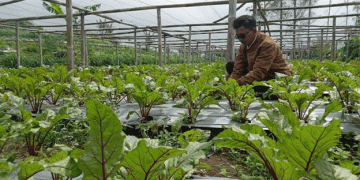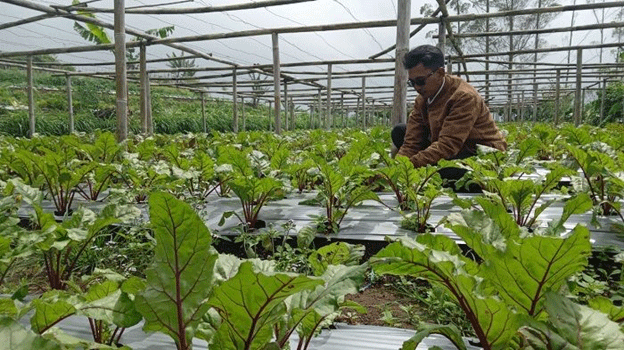As consumer preferences shift and supermarket shelves increasingly demand quality over quantity, farmers in Ngablak, Magelang Regency are responding with innovation—not with high-tech machinery or mass production, but by going niche and premium.
Led by Eko Manunggal, head of the Mutiara Organik Farmers Group, over 20 farmers have transitioned from conventional vegetable farming to cultivating non-local, high-value crops such as beetroot (bit merah), kale, romaine lettuce, and Japanese spinach (horenso). The strategy: target the middle to upper-income segment, where product quality and consistency are more important than volume.
Why Beetroot?
Among the standout crops is beetroot, a vegetable not traditionally grown in the region. Compared to staples like cabbage and mustard greens, beetroot:
- Requires less labor and input
- Harvests faster — in just 50 days
- Sells at stable farm-gate prices between IDR 5,000–12,000/kg
- Is in high demand by supermarkets in Malang, Surabaya, and even Sumatra
“Unlike cabbage, which takes around three months to harvest, beetroot allows 2–3 crop cycles in the same time,” says Eko.
Daily Harvests and Supermarket Standards
The group ships 200 kg of vegetables daily, following a just-in-time model that maximizes freshness:
- Harvest in the morning
- Pack in cardboard boxes
- Ship via overnight transport
Each product must meet strict grading criteria:
- Beetroot: 4 bulbs per kg
- Horenso: 35–40 cm tall, blemish-free leaves
- Kale: Dark green, no insect damage
Produce that does not meet supermarket specifications is redirected to modern markets or home industries in Semarang, ensuring zero waste across all grade levels (A, B, and C).
Organized for Consistency: The Plasma Farming Model
To maintain quality and ensure daily supply, the cooperative uses a plasma farming model:
- Coordinated planting schedules prevent simultaneous harvests
- All farmers follow standardized growing methods
- Regular training and quality checks are conducted
This organized model gives buyers confidence in supply and supports fair market pricing for farmers.
Adding Value with “Bieten Tea”
In partnership with Satya Wacana Christian University (UKSW), the village is also exploring value-added processing. Beetroot is now being transformed into herbal tea (Bieten Tea) under the village-owned enterprise. Though promising, this product still struggles with market adoption due to unfamiliarity.
Local leader Subandi is hopeful: “The infrastructure and workforce are ready—we just need stronger marketing channels to scale up beetroot-based tea and other innovations.”
Ngablak’s move toward premium vegetable farming demonstrates how strategic crop selection, cooperative models, and value-chain partnerships can unlock new income streams for rural communities. In an era where consumers demand quality, traceability, and freshness, targeting niche segments could be the key to rural agricultural prosperity—without needing large landholdings or high-tech infrastructure.































